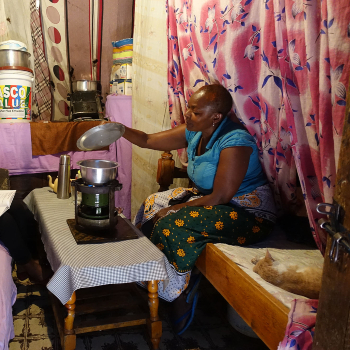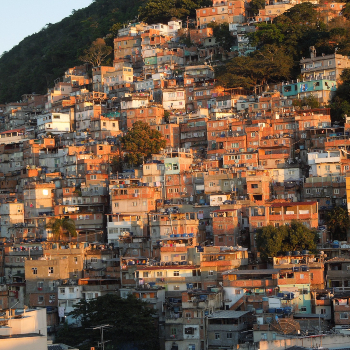
Dr Fabrizio Ceschin
Reader in Design
Michael Sterling 156
- Email: fabrizio.ceschin@brunel.ac.uk
- Tel: +44 (0)1895 267394
Research area(s)
- Design for sustainability and circular economy
- Product-Service System (PSS) design for sustainability
- Design for socio-technical transitions (transition design)
- Ecodesign
- Design for sustainable behaviour
- Design for energy access in low- and middle-income contexts
- Design for distributed economies
- Design for sustainable social innovation
- Codesign, crowdsourcing and participatory approaches
Research grants and projects
Research Projects
Project details
(2021-2024) UKRI Interdisciplinary Research Centre for Circular Metals (funded by UK Research Innovation). CircularMetal is a national research centre dedicated to exploring how the reuse of metals can benefit the environment and the British economy, and will aim to develop an understanding of how the country can best shift towards a carbon-neutral, circular economy by 2050. (Co-Investigator, responsible for the business model innovation activities) https://www.circularmetal.co.uk/
(2021-2024) PISCES, Systems analytics approach to reduce plastic waste in Indonesian societies (funded by UK Research and Innovation, NERC). The focal point of this research programme is to understand and manage the risks posed by plastic pollution in Indonesian contexts by providing evidence-based solutions and system change interventions to reduce the impacts of plastic waste under a circular economy framework. (Co-Investigator, Leader of the Design WP)
(2019-2024) GENS, Mainstreaming Gender for Energy Security in Poor Urban Environments (funded by by National Research Foundation (NRF) of South Africa and the Newton Fund through the British Council under the Africa-UK Trilateral Research Chair programme). The project is a collaboration between Stellenbosch University (ccordinator), University of Nairobi and Brunel University London. The project aims to explore opportunities for gendered energy innovations, which means innovations that take into account the different roles, responsibilities and needs of women and men in dealing with energy insecurity. The project will setup living labs for multi-stakeholder and community collaboration in two townships: Groenheuwel, South Africa and Mathare, Kenya. These will be instrumental to support stakeholders in co-designing gendered energy innovations, as well as to inform gendered policy landscape for energy technology commercialisation. (Principal Investigator for Brunel) https://gens.sun.ac.za/
(2019) Shifting from single-use to reusable-refillable-returnable packaging systems in India and Indonesia’ (funded by Global Challenge Research Fund - Mobility and Networking grant, Institutional support funding). The project investigated the opportunities, barriers and drivers, for businesses in India and Indonesia, to innovate towards reusable-refillable-returnable packaging systems in the food and homecare product sectors, as a strategy to tackle plastic waste and pollution. In collaboration with the Indian Institute of Science (Prof Chakrabarti) and the Bandung Institute of Technology (Dr Sembiring), the project delivered seminars and workshops in India and Indonesia, involving academics as well as stakeholders representative of the entire plastic-packaging value chain. The project strengthened a multidisciplinary network of academics at BUL, IISc and ITB interested in the topic of tackling plastic pollution, and built a network of Indian and Indonesian businesses and stakeholders (including packaging manufacturers, food and homecare product manufacturers, retailers, waste management actors and policy makers) committed in addressing the challenge of plastic pollution. (Principal Investigator)
(2018-2021) INEX-ADAM, Increasing Excellence on Advanced Additive Manufacturing (funded by European Commission under the H2020 programme). INEX-ADAM is a 3-year programme to strengthen the excellence and innovative capacity for research in the field of Additive Manufacturing. The project is coordinated by the University of Zagreb (Croatia) and supported by Brunel University London (United Kingdom), University of Lund (Sweden), Montanuniversität Leoben (Austria) and the Technology Institute on Metal-Processing, Wood, Furniture, Packaging and related industries (Spain). The project will increase the regional and national profile of all research institutions, achieving widespread visibility by implementing strategic measures in the form of teaching curricular and training materials, as well as experience transfer events including public engagement workshops, summer schools, expert talks, open days and conferences with active participation of all consortium members on relevant areas related to Additive Manufacturing. This project will serve as driver for new level of cooperation, knowledge, expertise and business opportunities through strong synergy effect and impact on all members and stakeholders, thus foster more advanced application of AM in the fields of engineering, design and medicine. (Co-Investigator) http://inex-adam.eu/
(2015-2019) LeNSin, international Learning Network on Sustainability (funded by European Commission under the ERASMUS+ programme). The project involves 36 universities from Europe, Asia, Africa, South America and Central America, aiming at the promotion of a new generation of designers (and design educators) capable to effectively contribute to the transition towards a sustainable. LeNSin ambitions to improve the internationalisation, intercultural cross-fertilisation and accessibility of higher education on Design for Sustainability (DfS). The project focuses on Sustainable Product-Service Systems (S.PSS) and Distributed Economies (DE) – considering both as promising models to couple environmental protection with social equity, cohesion and economic prosperity – applied in different contexts around the world. Within this context Brunel University will in particular focus on the intersection between S.PSS design and distributed manufacturing. LeNSin project activities involve five seminars, ten pilot courses, the setting up of ten regional LeNS_labs, and of a (decentralised) open web platform for the co-development and sharing of learning resources. (Principal Investigator for Brunel) http://www.lens-international.org/
(2013-2018) OpenFood, Prototyping Open Innovation Models for ICT-Enabled Manufacturing in Food and Packaging (funded by EPSRC). The Open Food project is about building new ICT platforms and tools that will enable the food industry to crowdsource sensory and experiential perceptions and attributes of food products and to translate those into customer requirements for new products, integral packaging and manufacture. Through doing this we aim to address the key innovation challenges, which are to scale up and streamline consumer-informed innovation and to reduce R&D waste. (Co-Investigator)
(2016-2017) City Visionaries: improving social entrepreneurship and design skills in NGOs operating in Brazilian slums (funded by British Council under the Newton Fund programme). The project, led by TransLAB (Brazilian NGO) aimed at fostering social entrepreunership among young residents of fragile brazilian urban contexts - such as favelas. The project led to the development of an educational practice-based course to be applied within favelas to co-create with local young people social entrepreunership projects. In this context the role of Brunel was to investigate how traditional co-design tools can be adapted to be used by non-professional designers. A pilot case was conducted in Morro da Cruz, a territory of the suburban area of Porto Alegre, in southern Brazil. (Principal Investigator for Brunel) https://visionariosdacidade.com.br/
(2016-2017) Design and innovation tools to support SMEs in developing sustainable Product-Service Systems for energy access in African contexts (funded by EPSRC, Global Challenge Research Fund, Institutional support funding). As a follow up of the LeNSes project, this project aimed at improving the ability of African companies in the energy sector to design and innovate Distributed Renewable Energy systems adopting a Product-Service System approach, thus integrating product/technology innovation with service and value chain innovation. In collaboration with University of Botswana and University of Nairobi, and a wide range of industrial partners, the project developed and tested a set of design tools to explore, ideate, develop and visualise business models for energy access. (Principal Investigator) https://www.se4alldesigntoolkit.com/
(2013-2016) LeNSes, Learning Network on Sustainable Energy Systems (funded by European Commission under the EDULINK II programme). LeNSes involved seven European and African universities in addressing the topic of energy access in low- and middle-income contexts, by exploring the potential of combining Product-Service Systems (PSS) with Distributed Renewable Energy systems (DRE). LeNSes promoted a new shared and articulated disciplinary ground on System Design for Sustainable Energy for all, and put forward a new design approach and tools to develop sustainable business models for energy access. The project also produced an open learning e-package, a modular package of teaching materials (texts, slide shows, audio, video, etc.) and tools for designers that design educators worldwide can download (free of charge), modify/remix and reuse (copy left). (Principal Investigator for Brunel) http://www.lenses.polimi.it/ https://www.se4alldesigntoolkit.com/
(2013-2016) LightTouchMatters, Design driven development of touch sensitive luminous flexible plastics for applications in care & wellbeing (funded by European Commission under the FP7 Programme). the project (led by TU Delft), developed a completely new generation of smart materials that combine touch sensitivity with luminosity, based on latest developments in polymeric piezo materials and flexible OLEDs. With a focus on products for care and well-being applications, the project led to the development of a range of demonstrators at Technology Readiness Level 5. (Co-Investigator) https://www.tudelft.nl/en/ide/research/research-labs/emerging-materials-lab/lighttouchmatters/
(2013) Circular Design for an economy drill (funded by UK Technology Strategy Board). The project aimed to redesign an economy drill in order to facilitate disassembly to fit a more circular economy model. The current design did not enable easy repair or disassembly, with a measured time of nine minutes for manual disassembly. A lifecycle analysis, and research on design for disassembly best practice was conducted. An idea generation session was held and several concepts were visualised and submitted for evaluation by both Kingfisher and Chervon manufacturing. The resulting concepts were then further developed and a final concept generated and approved for prototyping. The benefits of the final concept were a much reduced disassembly time of 60 seconds, leading to a number of improved opportunities for easier repair, remanufacture, and recycling of the drill. An associated business case highlighting the benefits of increased repair and remanufacture of power drills was developed. (Co-Investigator) https://www.youtube.com/watch?v=gJl71uGT0mE
(2009-2012) Cape Town Sustainable Mobility. The research project (involving Politecnico di Milano, the Cape Peninsula University of Technology and some local companies and NGOs) aimed at designing and implementing a sustainable Product-Service System to provide mobility services to elderly and disabled people in the suburban areas of Cape Town. In particular the system is expected to offer disabled and elderly people increased mobility services from their homes to the nearest public transport stops, or to local schools, hospitals etc. The project is used to investigate the role of design in triggering and supporting the adoption of sustainable Product-Service Systems. (Research Assistant)
(2011-2012) TANGO, Towards A New interGenerational Openness (funded by the European Commission under the Culture Programme). The project, coordinated by Aalto University, explored the issue of social inclusion of the elderly and intergenerational dialogue and, through a sustainable students’ project travelling exhibition (that took place in 2013 in Helsinki, Nantes and Milan), proposed to the local communities and stakeholders socially and environmentally promising design concepts, fostering dialogue and setting the stage for future local implementation. (Research Assistant)
(2011-2012) Green Move (funded by Regione Lombardia, Italy). The project involved 8 departments of Politecnico di Milano. It aimed at designing and testing a vehicle-sharing system in Milan, with different categories of electric vehicles (bikes, scooter and cars). In particular the core idea was to develop a peer-to-peer vehicle sharing system (single users, private companies, associations, etc, can share their electric car or fleet). In this respect new business models and related innovative services (for different target actors), and the technological platform required to implement the system were designed and developed. (Research Assistant) http://gm.polimi.it/
(2007-2011) LeNS, The Learning Network on Sustainability (funded by the European Commission under the Asia Link Programme).The aim of this research, coordinated by Politecnico di Milano, was to develop and diffuse Product-Service System design for sustainability in design schools with a transcultural perspective. Its ambition was to promote a new generation of designers (and design educators) capable to effectively contribute to a transition towards a sustainable society. The main output of the project is the so called Open Learning E-Package (OLEP), an open web platform that allows a decentralised and collaborative production and fruition of knowledge. It can be described as a modular e-package of teaching materials (slide shows, texts, audio, video, etc.) and tools for designers, that design researchers/educators (as well as students, designers, entrepreneurs and interested persons/institutions) worldwide will be able to download (free of charge), modify, remix and reuse. (Research Assistant)
(2008-2009) VDS, Vehicle Design Summit (funded by the Massachusetts Institute of Technology and a pool of companies). The project, coordinated by the MIT of Boston, aimed to design and prototype an “open source” low environmental impact vehicle as well as to develop innovative and sustainable business models (and related mobility services). In this framework Politecnico di Milano was responsible for the design of sustainable business models and the design of innovative mobility services. (Research Assistant)
(2006-2008) SCORE!, Sustainable Consumption Research Exchange! (funded by European Commission under FP6). The Network project SCORE!, coordinated by TNO, acted as one of the EU central support structures for the UN 10 Year Framework of Programs for Sustainable Consumption and Production (SCP). The aim was to: (I) analyse, in a series of workshops and conferences, the state of the art in SCP research, and promote cases of (radical) sustainable consumption for mobility, agro-food and energy use; (II) consolidating a strong practitioner network and build a structure that can support exchanges worldwide; and (III) develop insights on how to make SCP relevant for policy and business. (Research Assistant) http://www.score-network.org/score/score_module/index.php
(2006) Less waste, other ways of doing! Scenarios and services to prevent waste production in the food and paper chains in the city of Brescia (2006, funded by Municipality of Brescia and Province of Brescia). The research project aimed at defining promising scenarios to prevent waste production in the food and paper chains. The project led to the development of a set of solutions potentially capable to prevent and valorise waste. On a system level it was hypothesized a redefinition of the interactions between the different socio-economic stakeholders (supermarkets, fruit and vegetable markets, canteens, municipality, ASM Brescia, etc.), in order to facilitate the reuse of the material flows coming out from each actor (in an industrial symbiosis perspective). Moreover a set of services to prevent and reduce the production of waste was designed. (Research Assistant)
(2009-2011) Research projects on Product-Service System innovation funded by companies. Involvement in projects aimed at designing new Product-Service System concepts, for KONE (2009-2010), and Tetra Pak (2010-2011). (Research Assistant)
(2006-2010) Research projects on product ecodesign funded by companies. Involvement in projects aimed at integrating environmental requirements into companies design processes and developing tools to enable them to design low environmental impact products: for Artemide (2008-2010), KONE (2008) and General Beverage (2006-2008). (Research Assistant)








